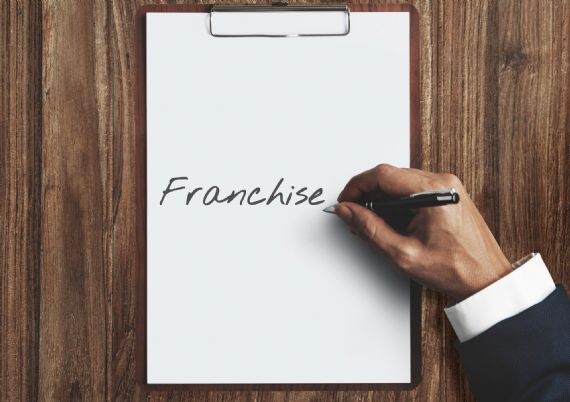- Franchisor & Franchisee – Definitions
- Federal vs. State Law
- U.S. Federal Franchise Rule – An Overview
- State-Specific Franchise Law – What You Should Know?
Franchising in the United States is a multi-billion dollar business. 1 out of 9 retail dollars spent every day in the country is at a franchised business. The U.S. continues to be a leader in the global franchising industry, with some of the prominent names that are successfully running worldwide – Kentucky Fried Chicken, McDonald’s, Burger King, 7-Eleven, Subway, Pizza Hut, and Hertz. If you are considering setting up a franchising business in the U.S., it is important to know the franchise law that is applicable here. This blog will help you understand the basics of franchising law in the United States.
Franchisor & Franchisee – Definitions
A franchisor is a business entity that offers or sells the right to use its expertise and brand to a franchisee who will sell the same products and services in another branch of the franchisor.
On the other hand, a franchisee is a business entity whom the franchisor allows to sell its products or services, along with knowledge and branding, in lieu of a franchise fee. The franchisee has the authority to offer, distribute, or sell commodities, goods, or services which are distinguished by a brand name, trademark, service mark, or other commercial symbols.

Federal vs. State Law
The franchise industry in the U.S. is governed by two sets of laws – the federal law and individual state regulations. At the national level, the Federal Trade Commission (FTC) promulgates the law, primarily known as the FTC Franchise Rule or FTC Rule. The federal franchise law is applicable for all the 50 states, U.S. territories, and the District of Columbia. In addition to the federal law, 24 U.S. states have their own franchise relationship and disclose laws.
The federal law sets only the minimum standards regarding the franchisor’s disclosure obligations. It gives authority to individual states to supplement the regulations with their own specific requirements and law. The state-specific laws and regulations also cover the franchisor’s disclosure obligations, registration & review of franchise disclosure documents, and the relationship between the franchisor and the franchisee.
U.S. Federal Franchise Rule – An Overview
The FTC Franchise Rule provides the franchisor valuable material information they require to evaluate the opportunities and risks of investing in a franchise business. Before you can set up a franchise business in the U.S., the federal franchise law requires you (franchisor) to provide a disclosure document to all potential franchisees. The Disclosure Document FDD contains 23 items of material information regarding the offered franchise business, other franchisees, and much more.
The franchisors can submit the Disclosure Document via any method available, including electronically. While completing the Disclosure Document, you are allowed to use any of the 3 formats – the UFOC Guidelines, the original Franchise Rule, or the Amended Rule. You can submit your disclosures electronically only if you have opted for the amended Rule.

The FTC franchise rule compliance guide is vast and understanding it thoroughly may be cumbersome. An experienced U.S. business lawyer can provide valuable guidance in this regard.
State-Specific Franchise Law – What You Should Know?
24 states in the U.S. have passed their own set of laws and regulations, which must be complied in addition to the federal rule. The state-specific laws often regulate the offer or sale of a franchise, impose registration obligations, impose state-wise FDD requirements, regulate an ongoing franchise relationship, or even prohibit certain agreement provisions.
Since the definitions of a franchise offer, sale or relationship varies at the federal and state level, it is important for franchisors to assess each state’s unique franchise act if they are considering a sales activity in more than one U.S. state. Typically, state-governed franchise regulations fall into one of these categories:
- Laws requiring the franchisor to provide its potential franchisees specific material information before they can purchase a franchise;
- Regulations that govern the legal relationship between a potential/existing franchisor and franchisee;
- Laws that need the franchisor to first register its franchise before it is put on offer or sale;
- Laws requiring the franchisor to register the franchise and get exemptions under business opportunity laws, which may affect the franchising business otherwise.
Conclusion

The U.S. franchise law is broad and often, complicated to understand. For both franchisors and franchisee, it is ideal to consult with an expert franchise attorney who have thorough knowledge of the federal & state law and can guide you in making the right investment decision.
Need Support?
Onal Gallant & Partners PC is a law office specializing in Real Estate Law, Intellectual Property, Corporate and Business Law, Immigration Law, and the US Visa Processes. We deliver reliable advice on a large variety of subjects ranging from forming a corporation and buying a house in the US to trademark registration and Green Card applications (e.g., EB3 Visa or DV Lottery). With exceptional knowledge and insight into immigration law, our experienced lawyers at Onal Gallant and Partners are ready to help and respond to all of your inquiries.
www.ogplawfirm.com, Facebook, Twitter, Quora, LinkedIn and Medium accounts, Youtube Channel, and our blogs in Turkish and English can be followed to get updated information and news about these topics.
You can also visit our office directly or contact us via e-mail or phone.



